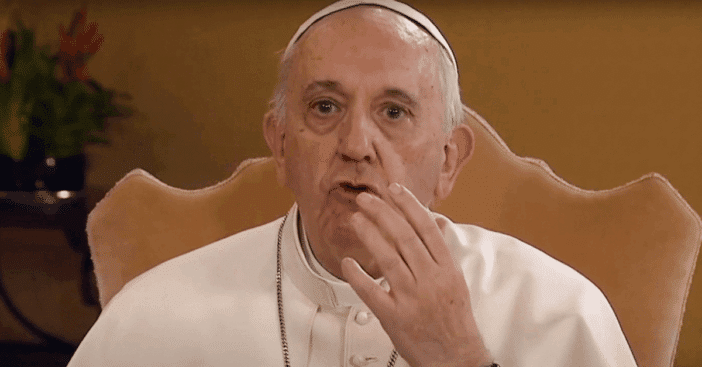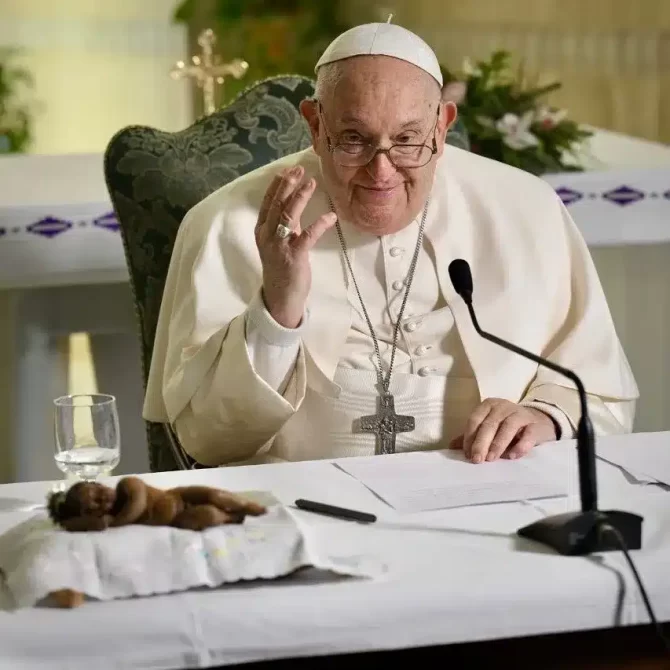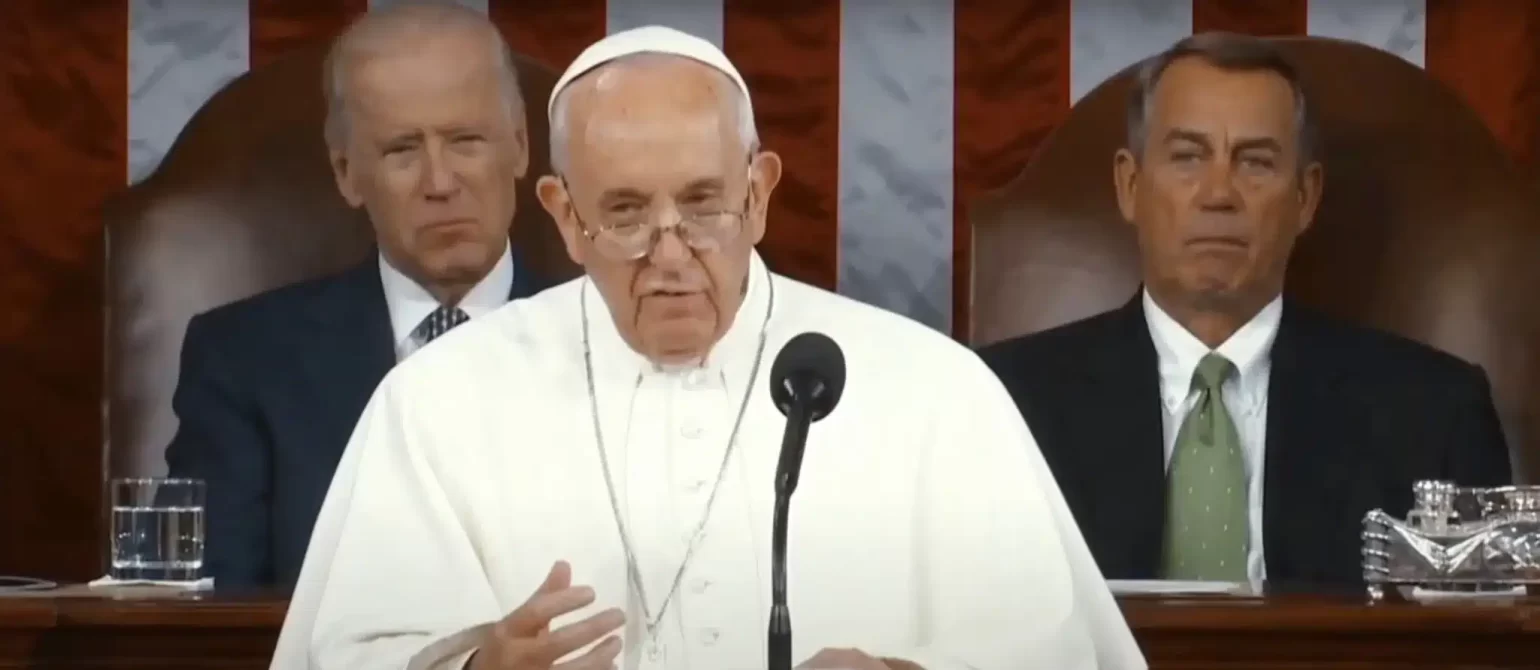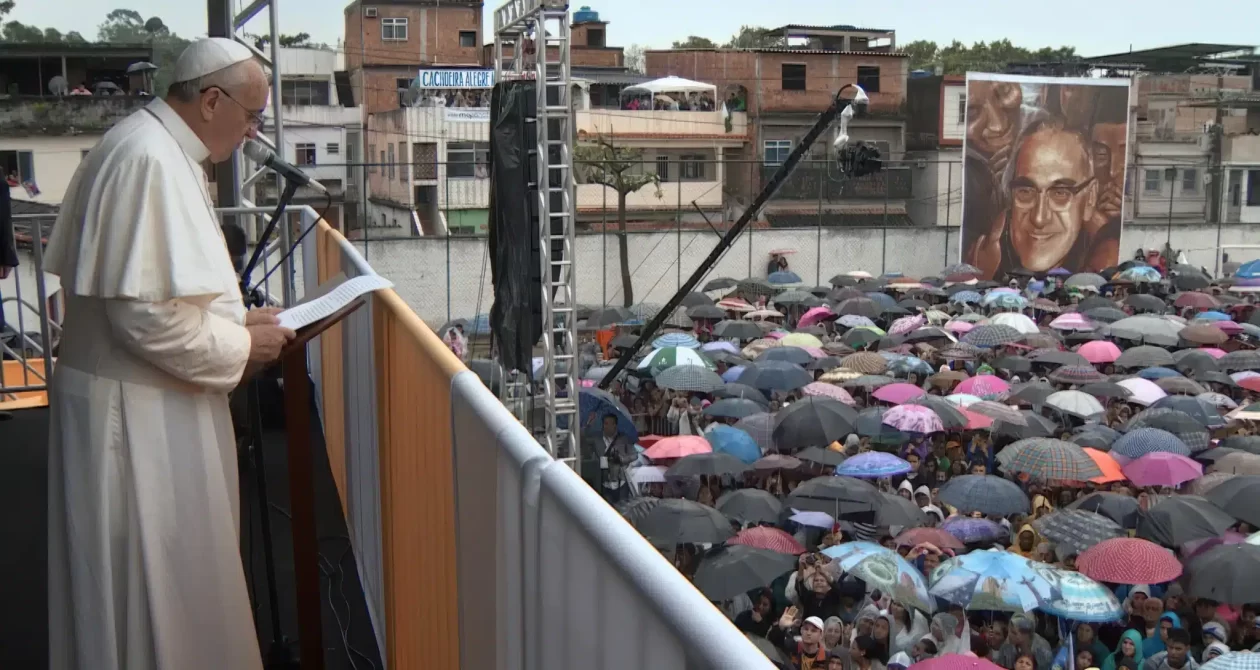
Pope Francis has passed away at 88. The Vatican has officially announced the death of the first Latin American pope, following a stroke and irreversible cardiocirculatory collapse. His death was confirmed through electrocardiographic thanatography, used in certifying deaths in the Holy See.
The death of the pope occurred early Monday morning, April 21, after a declining health condition for several years. Dr. Andrea Arcangeli, Director of the Directorate of Health and Hygiene of the Vatican City State, certified the death, stating, “The causes of death, to the best of my knowledge and judgment, are a stroke followed by coma and irreversible cardiocirculatory collapse.”
Pope Francis’ cause of death

Pope Francis was born Jorge Mario Bergoglio in Buenos Aires, Argentina, and he became the 266th pope of the Roman Catholic Church on March 13, 2013. His election was historic as he was the first Jesuit pope, the first from the Americas, and the first to take the name Francis, after St. Francis of Assisi, the patron saint of humility and the poor.
Pope Francis consistently advocated for the marginalized and poor throughout his twelve-year pontificate. He lived in the modest Vatican guesthouse instead of the traditional Apostolic Palace. He drove a Ford Focus, wore simple white vestments, and was often seen mingling with refugees, prisoners, and the disabled. “I see the church as a field hospital after battle,” he said, urging the clergy to heal wounds and meet people where they are.

Pope Francis had been hospitalized at Rome’s Gemelli Hospital earlier this year due to a respiratory crisis. After spending nearly 40 days under intensive care, he returned to his residence at the Domus Santa Marta. Despite this concern, the pope made one final public appearance on Easter Sunday, April 20, waving and offering blessings to thousands gathered in St. Peter’s Square.
While many praised Pope Francis for his pastoral tone and inclusive approach, his reforms were not without controversy. Conservative factions within the Church grew uneasy with his positions on issues like climate change, capitalism, and same-sex relationships. He loosened procedures for marriage annulments, allowed priests to absolve women who had had abortions, and authorized blessings for same-sex couples. His 2023 decision to permit such blessings, while upholding traditional marriage, caused division within Catholic ranks, with some cardinals openly accusing him of diluting Church doctrine.

Mandatory Credit: Divisione Produzione Fotografica via CNP/AdMedia
Who is the next Pope?
Pope Francis’ health struggles had intensified in recent years. He suffered from chronic lung disease stemming from a past infection that led to the removal of part of one lung. He also battled high blood pressure, diabetes, and repeated bouts of pneumonia. His last significant act was receiving U.S. Vice President JD Vance at the Vatican the day before Easter. He gave his final blessing to the world from the balcony of St. Peter’s Basilica just hours before his death.

On Monday morning, Cardinal Kevin Farrell delivered the official announcement. “At 7:35 this morning, the Bishop of Rome, Francis, returned to the home of the Father. His entire life was dedicated to the service of the Lord and of his Church.” Church bells rang across Vatican City, Buenos Aires, Manila, and cities worldwide, mourning the pope.
Now, the world’s attention shifts to the next question: ‘Who is the next Pope?’ The College of Cardinals is expected to convene in the coming days to begin the papal conclave. According to tradition, the Sistine Chapel will host this secretive and sacred event. Already, speculation is rising over who will be the next pope.

Cardinal Matteo Zuppi of Italy, a peacemaker from Ukraine, and a moral leader, Cardinal Peter Turkson of Ghana, is speculated to be the next pope. Pope Francis’ body will lie in state in St. Peter’s Basilica to allow faithful Catholics worldwide to pay their respects. His funeral mass is expected to take place later this week.
